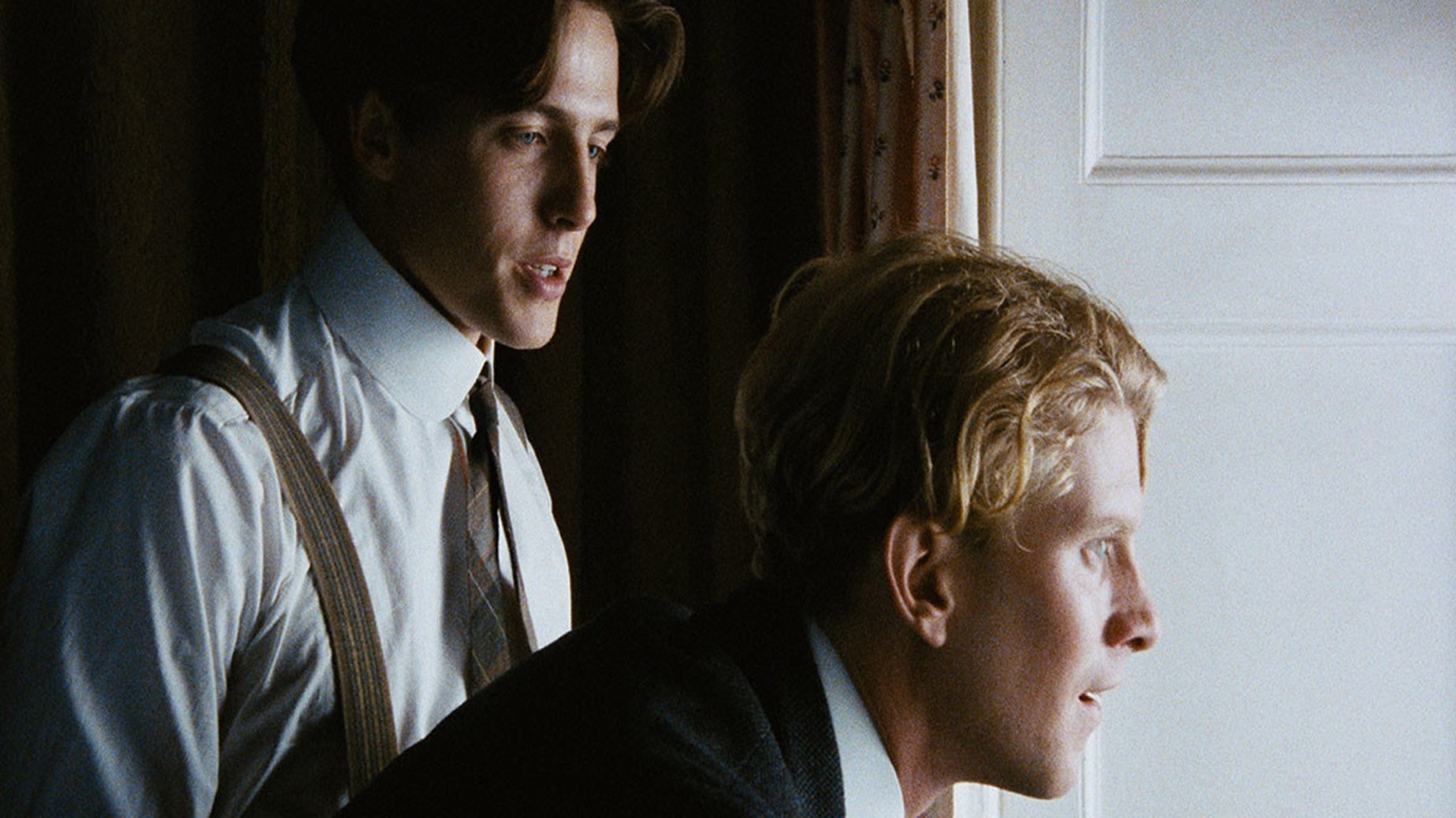Post by Brad Nelson on Jul 13, 2020 7:56:22 GMT -8
Maurice is set in the years before WWI. It’s an English period piece based on an E.M. Forster novel which is itself apparently based upon “a queer couple, one upper class and the other working class, who lived together openly in England for about 35 years until 1928.” But that aspect comes much later, almost at the end of the film which was shot in 1987.
Other than this subject matter, it’s a fairly standard period piece that remains interesting throughout. Hugh Grant plays Clive Durham who meets Maurice Hall (James Wilby) at Cambridge. Clive is more into the idea of man-man love as a platonic ideal and believes such relationships are missing the point if they are physical.
Maurice goes from straight-laced boy to flaming homo faster than a Ferrari can go from zero to 60. Even at 140 minutes runtime, the movie seems to have obvious bits missing as their are small jumps here and there as if it was intended to be at least 3 hours and was cut down.
Wilby is excellent in the role of a homosexual who is smitten with Clive to the point of acting a fool. Clive, on the other hand, is much more pragmatic about the whole thing. In fact, he eventually decides the better path for him is to get married and start his political career. This sends Wilby into a well-acted tizzy.
One gets the distinct impression that the unwritten point (or effect) of university life in England was to turn all boys into atheists and queers. And they seem to have done a good job of it. Grant remains utterly charming throughout this and, hey, you don’t have to be queer to see that he is a handsome man indeed. He smiles his way through this one, never taking things too seriously and having a much more British sensibility about him.
Maurice, on the other hand, is the kind of emotional queen who is clearly at times unstable and more than a little self-defeating. Sure, the movie will be praised by the rabble because of the subject matter, not caring (or even knowing) if the movie is good, bad, or indifferent just so long as their are homosexual characters who are, more or less, viewed in a positive light.
This is hardly Gosford Park, but it is in the ballpark of that. You get a great glimpse of that period, the servants (who are rolling their eyes at all the perversions they see behind the scenes, but dare only hint at their disproval), the costumes, the snobbery, the parties at the estates, etc. It’s a period soap opera and does succeed in that regard.

Other than this subject matter, it’s a fairly standard period piece that remains interesting throughout. Hugh Grant plays Clive Durham who meets Maurice Hall (James Wilby) at Cambridge. Clive is more into the idea of man-man love as a platonic ideal and believes such relationships are missing the point if they are physical.
Maurice goes from straight-laced boy to flaming homo faster than a Ferrari can go from zero to 60. Even at 140 minutes runtime, the movie seems to have obvious bits missing as their are small jumps here and there as if it was intended to be at least 3 hours and was cut down.
Wilby is excellent in the role of a homosexual who is smitten with Clive to the point of acting a fool. Clive, on the other hand, is much more pragmatic about the whole thing. In fact, he eventually decides the better path for him is to get married and start his political career. This sends Wilby into a well-acted tizzy.
One gets the distinct impression that the unwritten point (or effect) of university life in England was to turn all boys into atheists and queers. And they seem to have done a good job of it. Grant remains utterly charming throughout this and, hey, you don’t have to be queer to see that he is a handsome man indeed. He smiles his way through this one, never taking things too seriously and having a much more British sensibility about him.
Maurice, on the other hand, is the kind of emotional queen who is clearly at times unstable and more than a little self-defeating. Sure, the movie will be praised by the rabble because of the subject matter, not caring (or even knowing) if the movie is good, bad, or indifferent just so long as their are homosexual characters who are, more or less, viewed in a positive light.
This is hardly Gosford Park, but it is in the ballpark of that. You get a great glimpse of that period, the servants (who are rolling their eyes at all the perversions they see behind the scenes, but dare only hint at their disproval), the costumes, the snobbery, the parties at the estates, etc. It’s a period soap opera and does succeed in that regard.
